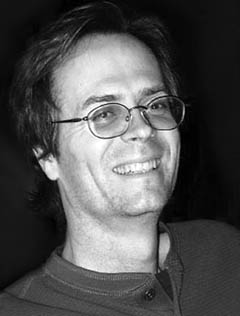A Trio of New Poetry Books from Artamo Press
Good Things Come in Threes
Santa Barbara’s Artamo Press has published its second poetry series of three volumes and launched the series at a reading June 17 at the Karpeles Manuscript Library: Libido Dreams by Glenna Luschei, Adventures of the Minor Poet by David Starkey, and The Doves Flew High by David Krieger. These books bring to mind Adrienne Rich’s comment in her volume on poetry and politics, What Is Found There, “A poem can’t free us from the struggle for existence, but it can uncover desires and appetites buried under the accumulating emergencies of our lives.”

To enter the poems of Glenna Luschei, longtime poet, publisher, editor, and dreammaker, you have to leave the ordinary behind and jump into the swamp of the “Great Dismal” from which “no one returns” in Libido Dreams. Her poems often haunt with stark language and spell-binding images. Her subjects are the ecstasy and anguish of love, jealousy and forgiveness, Eros, to be sure, and family. Luschei is a rancher and world traveler, and her poems are rich with the miracle of harvest, as well as the magic and magnetism of Tokyo, Bogot¡, St. Petersburg, and the Galapagos. Throughout, she shows how thin the veil is between dream and reality, how perception changes with manipulation of language:
I chase my own passion:
Amber! Resin locked in trees
for 53 million years. A mosquito’s
pinned down, wings back.
Not a bad way to spend eternity.

David Starkey, poet, playwright, and teacher, is also host of the popular Santa Barbara TV program The Creative Community, which recently won best talk show on a local access station in the U.S. for a second year. His Adventures of the Minor Poet burst with his entertaining wit. Starkey’s titles alone bring chuckles: “The Minor Poet Checks His Credit,” “The Minor Poet Returns from the Orient,” “: Goes Bargain Hunting,” “: Sets Free His Parakeets.” The Minor Poet has a major ego. Starkey’s language is masterful and energetic, and his tongue is always lodged firmly in his cheek. In “Defining the Minor Poet: An Essay,” Starkey writes:
The Minor Poet is like a church, an abandoned one,
with a ruined cemetery and swishing
cypress trees.
:
like the stolid geometrician who,
unaccountably, decides to deliver
his conference paper wearing wraparound shades.

David Krieger, President of the Nuclear Age Peace Foundation, has been writing poems against the atrocities of war for many years. The Doves Flew High, a poetic chronicle of the history of war in the nuclear age, including the present Iraqi conflagration, won the 2007 Peace Writing Award. It begins with a quote from Gandhi: “There have been tyrants and murderers and for a time they seem invincible but in the end, they always fall-think of it, always.” While Krieger’s poems condemn our leaders, he sifts through abominable horrors with the metal detector of hope, noting it in individuals like Vonnegut, Picasso, Neruda, and Paredes. Krieger asks his readers to stand with them. One of his most startling poems asks, “Where did the Victims go?”
but first into the air, then into the water, then into the grasses,
and eventually into our food?
. . .
It means there is no way to live without ourselves
becoming in subtle and powerful ways those
we have destroyed.
Krieger is a courageous, poignant poet who dares to tackle the emergency of our current struggle for humanity’s survival, which may be, in the end, why we write poetry. All three books are a must for a long summer night, when the mood strikes to travel someplace extraordinary: inside the workings of these brilliant minds.



